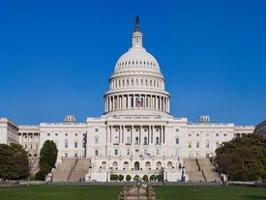59% Oppose Government Loan Help for Alternative Energy Company Like Solyndra
The questionable financial dealings of solar panel manufacturer Solyndra and its ties to the Obama administration are drawing little public attention so far, but most voters agree government help is not the best way to develop alternative energy sources.
Fifty-seven percent (57%) of Likely U.S. Voters think free market competition is more likely than government subsidies and regulation to help the United States develop alternative sources of energy. A new Rasmussen Reports national telephone survey finds that just 27% believe government subsidies and regulations are the better way to go. Sixteen percent (16%) are not sure. (To see survey question wording, click here.)
But then 71% of voters say private sector companies and investors are better than government officials when it comes to determining the long-term benefits and potential of new technologies. Sixty-four percent (64%) think it’s likely that if a private company which cannot find investors gets funding from the government, that money will be wasted.
If private investors aren’t willing to put money into a company, only 17% of voters think the federal government should provide loan guarantees or loans to help keep such a company in business. Fifty-nine percent (59%) say the government should not provide money for an alternative energy company after private investors refuse to invest in it. Twenty-three percent (23%) are not sure.
Solyndra received $535 million loan guarantees from the federal government after private investors refused to invest further. The company had strong political ties to the president including major campaign contributions. A plurality (47%) of voters agrees that when business owners support a winning politician, they get special treatment when applying for government loan guarantees. Twenty-nine percent (29%) do not believe that to be true, while another 23% are not sure.
While most voters oppose government funding help for “alternative energy” companies that can’t attract private investment, they’ve evenly divided when asked specifically about “companies that want to develop solar or wind power.” Forty percent (40%) say the government should provide funding for solar and wind power companies if investors will not invest in them, while an identical 40% oppose such government funding. Nineteen percent (19%) are undecided.
(Want a free daily e-mail update? If it's in the news, it's in our polls). Rasmussen Reports updates are also available on Twitter or Facebook.
The survey of 1,000 Likely Voters was conducted on September 24-25, 2011 by Rasmussen Reports. The margin of sampling error is +/- 3 percentage points with a 95% level of confidence. Field work for all Rasmussen Reports surveys is conducted by Pulse Opinion Research, LLC. See methodology.
Rasmussen Reports is a media company specializing in the collection, publication and distribution of public opinion information.
We conduct public opinion polls on a variety of topics to inform our audience on events in the news and other topics of interest. To ensure editorial control and independence, we pay for the polls ourselves and generate revenue through the sale of subscriptions, sponsorships, and advertising. Nightly polling on politics, business and lifestyle topics provides the content to update the Rasmussen Reports web site many times each day. If it's in the news, it's in our polls. Additionally, the data drives a daily update newsletter and various media outlets across the country.
Some information, including the Rasmussen Reports daily Presidential Tracking Poll and commentaries are available for free to the general public. Subscriptions are available for $4.95 a month or 34.95 a year that provide subscribers with exclusive access to more than 20 stories per week on upcoming elections, consumer confidence, and issues that affect us all. For those who are really into the numbers, Platinum Members can review demographic crosstabs and a full history of our data.
To learn more about our methodology, click here.



